
 Copyright 2012, 2009 by The McGraw-Hill Companies, Inc. All rights reserved. Except as permitted under the United States Copyright Act of 1976, no part of this publication may be reproduced or distributed in any form or by any means, or stored in a database or retrieval system, without the prior written permission of the publisher. ISBN: 978-0-07-177831-2
Copyright 2012, 2009 by The McGraw-Hill Companies, Inc. All rights reserved. Except as permitted under the United States Copyright Act of 1976, no part of this publication may be reproduced or distributed in any form or by any means, or stored in a database or retrieval system, without the prior written permission of the publisher. ISBN: 978-0-07-177831-2
MHID: 0-07-177831-4 The material in this eBook also appears in the print version of this title: ISBN: 978-0-07-177830-5, MHID: 0-07-177830-6. All trademarks are trademarks of their respective owners. Rather than put a trademark symbol after every occurrence of a trademarked name, we use names in an editorial fashion only, and to the benefit of the trademark owner, with no intention of infringement of the trademark.
Where such designations appear in this book, they have been printed with initial caps. McGraw-Hill eBooks are available at special quantity discounts to use as premiums and sales promotions, or for use in corporate training programs. To contact a representative please e-mail us at bulksales@mcgraw-hill.com. TERMS OF USE This is a copyrighted work and The McGraw-Hill Companies, Inc. (McGraw-Hill) and its licensors reserve all rights in and to the work. Use of this work is subject to these terms.
Except as permitted under the Copyright Act of 1976 and the right to store and retrieve one copy of the work, you may not decompile, disassemble, reverse engineer, reproduce, modify, create derivative works based upon, transmit, distribute, disseminate, sell, publish or sublicense the work or any part of it without McGraw-Hills prior consent. You may use the work for your own noncommercial and personal use; any other use of the work is strictly prohibited. Your right to use the work may be terminated if you fail to comply with these terms. THE WORK IS PROVIDED AS IS. McGRAW-HILL AND ITS LICENSORS MAKE NO GUARANTEES OR WARRANTIES AS TO THE ACCURACY, ADEQUACY OR COMPLETENESS OF OR RESULTS TO BE OBTAINED FROM USING THE WORK, INCLUDING ANY INFORMATION THAT CAN BE ACCESSED THROUGH THE WORK VIA HYPERLINK OR OTHERWISE, AND EXPRESSLY DISCLAIM ANY WARRANTY, EXPRESS OR IMPLIED, INCLUDING BUT NOT LIMITED TO IMPLIED WARRANTIES OF MERCHANTABILITY OR FITNESS FOR A PARTICULAR PURPOSE. McGraw-Hill and its licensors do not warrant or guarantee that the functions contained in the work will meet your requirements or that its operation will be uninterrupted or error free.
Neither McGraw-Hill nor its licensors shall be liable to you or anyone else for any inaccuracy, error or omission, regardless of cause, in the work or for any damages resulting there from. McGraw-Hill has no responsibility for the content of any information accessed through the work. Under no circumstances shall McGraw-Hill and/or its licensors be liable for any indirect, incidental, special, punitive, consequential or similar damages that result from the use of or inability to use the work, even if any of them has been advised of the possibility of such damages. This limitation of liability shall apply to any claim or cause whatsoever whether such claim or cause arises in contract, tort or otherwise.
CONTENTS
INTRODUCTION
HOW TO USE THIS BOOK
This book provides all the tools you need to get ready for the COOP, HSPT, or TACHS. The book is divided into five parts:
.
Getting Started Start here for answers to basic questions about the three exams. . Diagnostic Tests Take an exam-style mini-test to familiarize yourself with your test and to determine your strengths and weaknesses up frontso you know where to focus your exam prep. Each of the three diagnostic tests (COOP, HSPT, and TACHS) contains all the various question types youre most likely to see on your exam. . Question Types: Verbal Skills Prepare for reading, vocabulary, language, and other question types that test your verbal skills.
Learn a step-by-step approach to handling each question type. After each lesson, apply what youve learned to a series of exam-style practice questions. At the end of youll find a handy review of all the basic rules of grammar and writing mechanics you need to know for your exam. . Question Types: Math and Quantitative Skills Prepare for math computation, quantitative reasoning, and other question types that test your knowledge of math concepts and your math problem-solving skills. Learn a step-by-step approach to handling each question type.
After each lesson, apply what youve learned to a series of exam-style practice questions. At the end of youll find a handy math review covering all the math topics you need to know for your exam. . COOP, HSPT, and TACHS Practice Tests In , you apply all youve learned in the books lessons to two full-length practice COOP exams, two full-length practice HSPT exams, or two full-length practice TACHS exams. Be sure to read the explanations to the questions you answer incorrectly, so that you can avoid making similar mistakes on exam day.
OBTAINING UPDATED TEST INFORMATION
This book provides much of the information you need to know about the three testsespecially when it comes to test preparation and practice.
However, you should not rely solely on this book for your information. The high school to which youre applying for admission can probably provide up-to-date information about test registration procedures and about testing fees, locations, and dates. You can also contact the test developers directly for this information: Cooperative AdmissionsExamination Office CTB/McGraw-Hill 20 Ryan Ranch Road Monterey, CA 93940 (800)538-9547 www.ctb.comHSPT Scholastic Testing Service 480 Meyer Road Bensenville, IL 60106-1617 (800)642-6STS www.ststesting.comTACHS TACHS Examination Office P.O. Box 64675 Eagan, MN 55164-9522 (866)6IT-ACHS www.tachsinfo.com
PART 1
GETTING STARTED
CHAPTER 1
Overview of the COOP, HSPT, and TACHS
COOP, HSPT, and TACHS are the abbreviated names of three different standardized tests given to eighth-grade students for parochial high school admission and placement. Here are the full names of the three tests:
COOP (Cooperative Admissions Examination)
HSPT (High School Placement Test)
TACHS (Test for Admission into Catholic High Schools) Each high school decides which of these three tests (if any) applicants must take for admission and placement. (Some schools dont require scores for any of these tests.) Of the three tests, the HSPT has been in use the longest time and is by far the most widely used among the high schools.
In contrast, the TACHS was new in 2005 and is given only to students applying in the New York State Diocese schools. The three tests all use a multiple-choice question format to measure math, verbal, English language, and reasoning skills. Each of the three tests is divided into several sections, or subtests. However, each of the three tests contains its own distinct question types. The number of sections and questions varies as well.
The COOP (Cooperative Admissions Examination)
The COOP (Cooperative Admissions Examination) is a multiple-choice test administered to eighth-grade students to help parochial high schools evaluate them for admission and placement.
Next page

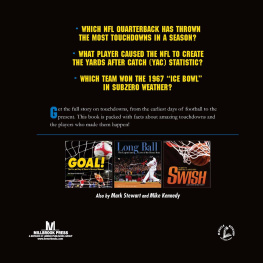
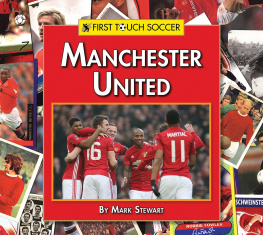
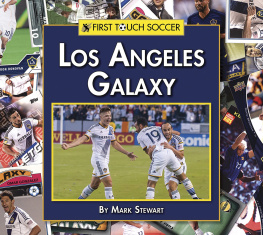
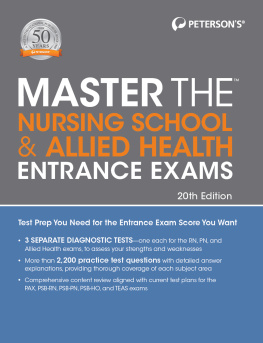

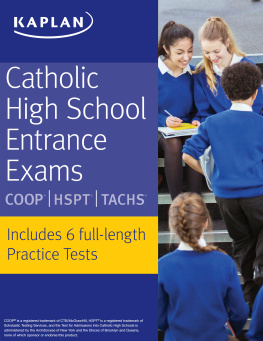

 Copyright 2012, 2009 by The McGraw-Hill Companies, Inc. All rights reserved. Except as permitted under the United States Copyright Act of 1976, no part of this publication may be reproduced or distributed in any form or by any means, or stored in a database or retrieval system, without the prior written permission of the publisher. ISBN: 978-0-07-177831-2
Copyright 2012, 2009 by The McGraw-Hill Companies, Inc. All rights reserved. Except as permitted under the United States Copyright Act of 1976, no part of this publication may be reproduced or distributed in any form or by any means, or stored in a database or retrieval system, without the prior written permission of the publisher. ISBN: 978-0-07-177831-2